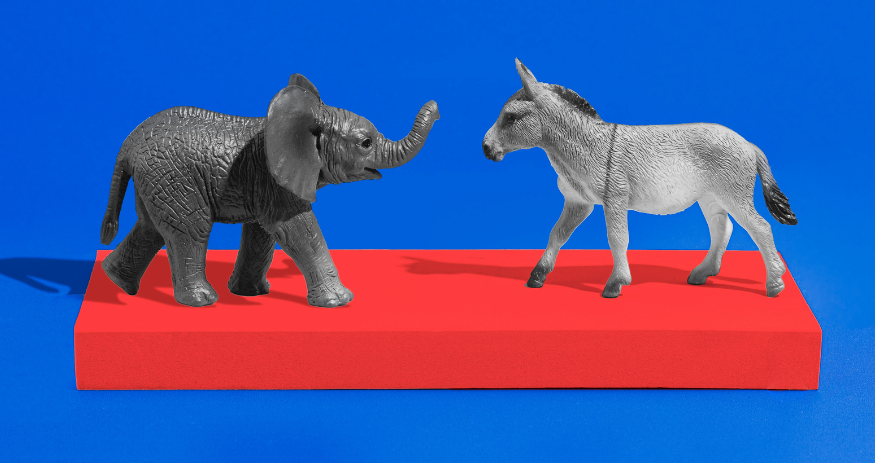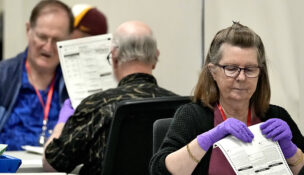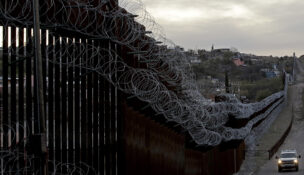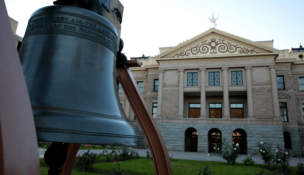Judge’s math to decide if voters get say on nonpartisan primaries initiative
Howard Fischer, Capitol Media Services//September 18, 2024//[read_meter]
Judge’s math to decide if voters get say on nonpartisan primaries initiative
Howard Fischer, Capitol Media Services//September 18, 2024//[read_meter]
PHOENIX – The question of whether voters get to decide to create a system of nonpartisan primaries could turn on math and whether it’s really too late to do anything about it since it is already on the ballots that start going out this week.
In a day-long hearing Wednesday, both supporters and foes of Proposition 140 agreed that at least 383,923 signatures on petitions turned in need to be determined valid. That is based on a requirement that proposed constitutional amendments, as this would be, need to have signatures equal to 15% of those who voted in the last gubernatorial race.
There also are arguments that the Make Elections Fair committee failed to turn in at least 383,923 valid signatures on petitions to put Proposition 140 on the ballot. That is based on signatures and petitions disqualified by the Secretary of State’s Office, a review of a random sample of what was left by county recorders, and a finding by a special master appointed by the court which says more than 37,000 signatures on petitions are duplicates, signed by the same person.
Attorney Daniel Arellano, who represents the challengers, told Maricopa County Superior Court Judge Frank Moskowitz, appointed by then Gov. Jan Brewer, there just aren’t enough signatures left.
But Michael O’Neil, a statistical scientist, said that the method used to do that computation – and get to the number that foes say falls short of the 383,923 – is flawed because it effectively double counts invalid signatures.
What makes that important, according to Travis Hunt, the lawyer for Proposition 140 supporters, is that double counting some disqualified signatures created a mathematical threshold which would require his clients to actually get the equivalent of 15.2% of the number who voted in the 2022 gubernatorial race. And that, he said, illegally overrides what is required.
Hunt now wants Moskowitz to rule that, when staying true to what he says is the constitutional standard, there really are enough signatures.
But foes of the initiative countered by bringing their own math expert to court.
Economist Constantijn Panis said he did not disagree with O’Neil’s math. But he said that doesn’t matter as the 383,923 number remains constant.
And, if nothing else, Arellano said a prior Supreme Court ruling upholds that double counting.
All that leaves it to Moskowitz to decide, as he was directed by the Arizona Supreme Court, to rule on whether he believes there are enough valid signatures to allow voters to have the final say.
Proposition 140 would scrap the current system where each party chooses its nominees for partisan federal, state and local offices. Instead, there would be a wide open primary, open to all candidates regardless of political affiliation, with all registered voters allowed to make their choices.
It also would create the option for lawmakers to have just the top two vote-getters advance to the general election or to allow up to five candidates to be on the ballot. And in that case, it would require the use of a system where voters rank their choices by preference, with the potential of multiple rounds of ballot counting until someone gets at least 50%.
Supporters submitted about 575,000 signatures to put the issue on the ballot. But a check of a random sample determined that only 409,474 are valid.
But Moskowitz assigned retired Judge Christoper Skelly to look at challengers’ complaints about duplicate signatures. And he concluded 37,657 of the names were duplicates, a finding that, if Moskowitz adopts, would leave the initiative backers short of what they need.
That’s what makes the argument about double counting of invalid signatures significant: A ruling that it improperly raises the burden on supporters beyond the 15% threshold would leave Prop 140 with enough signatures to go to voters.
The issue facing Moskowitz, however is even more complex, especially if he sides with foes and concludes there aren’t enough signatures. And that’s based on the fact that the ballots already have been printed, the deadline was weeks ago, with Prop 140 on them.
In that case, Arellano wants a court order directing state and county election officials to simply not tally the votes for or against the measure. But Hunt contends that, even if the signature count falls short, there is no legal authority for Moskowitz – or even the Supreme Court – to issue such an order at this late date.
He is not alone.
Secretary of State Adrian Fontes, in a brief to the Arizona Supreme Court, said once those ballots were printed – and the first ones go out at the end of the week – time simply ran out for foes to disqualify it, regardless of whether there are enough signatures or not.
“No provision in the Arizona Constitution permits a measure to go to the ballot and allow millions of voters to vote on it, only for those votes to be invalidated,” wrote Assistant Attorney General Kara Karlson on his behalf. “Neither is there a provision of the Arizona Constitution, nor state law, which would allow the secretary not to canvass a contest on the ballot.”
Initiative foes, however, take the position that the printing of the ballots – and even having them returned with votes for and against it – does not invalidate their challenge.
“Voters are not disenfranchised by not having their votes counted for a measure that we never eligible in the first place,” Arellano wrote in legal filings. He said allowing the printing of the ballots to bring pending election challenges to a halt would provide a “perverse incentive” for initiative supports to delay a final ruling “in hopes of running out the clock.”
Moskowitz did not say when he will rule. And any decision is likely to be appealed to the Arizona Supreme Court.

















